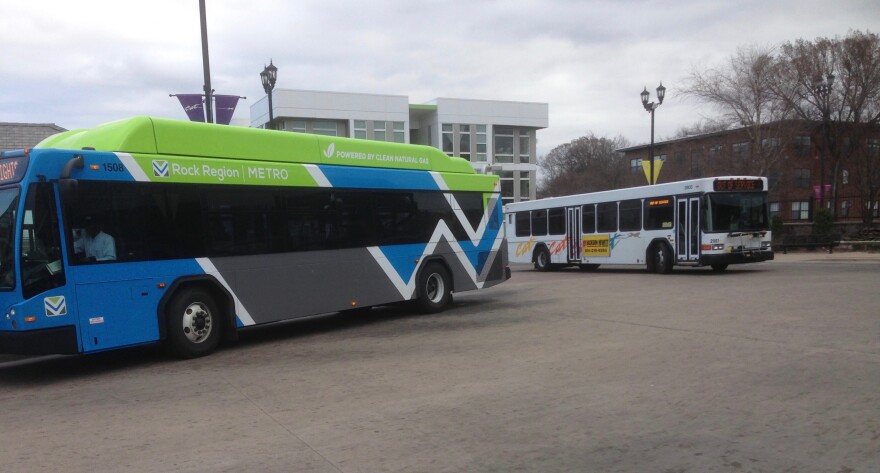During the current fiscal year, Rock Region Metro, the public transit system for Central Arkansas, will receive a boost in funding due to the Infrastructure Investment and Jobs Act, which was signed into law by President Joe Biden last year.
Becca Green, director of public engagement for Rock Region Metro, says the agency will receive $6,385,595 from the infrastructure bill, which is a 29% increase from the previous year for 5307 funds, which the agency receives each year from the federal government based on population and density.
“We have up to six years to use each year’s apportionment dollars. In theory, we are going to work through the oldest years that we have first, because we have some money left over from previous years that we can use for different projects. You may see some of the 2022 monies used this year, but the money will continue to be tapped into for the next several years,” Green said.
Funding for public transit included in the infrastructure bill is designated to improving repair backlogs, representing more than 24,000 buses, 5,000 rail cars, 200 stations and thousands of miles of track, signals and power systems nationwide, according to the White House website.
Green said the transit agency has worked on improving equipment, facilities and infrastructure, and making repairs. This year, Rock Region Metro plans on replacing eight buses with new compressed natural gas buses that were ordered last year. The agency will also receive five new electric buses, marking a first in the state. Eight new paratransit vans and six service support vehicles will also arrive this year.
Despite the increased funding from the infrastructure bill, Green said there are still challenges to the long term funding for public transportation, since Rock Region Metro doesn’t get funding from sales taxes or property taxes.
“The passing of the bipartisan infrastructure law is great news for communities like Central Arkansas that depend on public transit," Green said. "There is still a need for a long-term, stable funding source for the future of public transit. That said, this is a game-changing shot in the arm from the federal government as a catalyst to that longer-term investment.”
Lanny Richmond II, senior legal counsel for the Arkansas Municipal League, said it is difficult for local governments to use property taxes to fund public transportation because of the Arkansas Constitution's limit on millage taxes. He said sales tax increases can be used to fund public transit, as long as the voters approve the rate increase.
Local governments have funding for infrastructure, but the funds typically aren't used for public transit.
"Municipalities receive certain funds dedicated to the improvement and maintenance of their streets, usually referred to as 'street funds.' A portion of these funds can be used to support a public transit system, but usually municipalities use these funds on the construction and maintenance of streets," Richmond said in an email.
Green said it is worth it for communities to invest in public transportation.
“That investment is a smart move by communities because we are taking people to their jobs, to healthcare and to education and other opportunities,” Green said.
Prior to the pandemic, Rock Region Metro reported 2.3-million passenger trips per year. Last year, there were 1.3-million passenger trips, with the agency seeing a 15% increase in passenger trips from Nov. 1, 2021 to Jan. 31.
“Ridership is picking up as COVID cases fall,” Green said.
The agency won’t have to use funds from the infrastructure bill to replenish funding for when ridership was down during the pandemic, she said. The CARES Act, which was signed into law by former President Donald Trump in 2020, helped the agency supplement the funds that were lost during that time.
In an email, Greg Nation, public transportation administrator for the Arkansas Department of Transportation (ARDOT), said the state received a total of $46,610,045 for public transportation. He said funding for rural areas has to pass through ARDOT, while funding for urban areas went directly to transit agencies. Rural areas in the state will receive $27,011,978 for public transportation and urban areas will receive $19,598,078.



